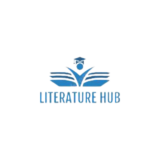What constitutes classic literature?
The word “classical literature” is certainly recognizable to most readers. The word encompasses a considerably broader range of works than classical literature. Older books that continue to be popular are almost always deemed classics. This means that classical literature’s ancient Greek and Roman authors also come into this group. A book’s status as a classic is determined by more than just its age. This category includes books that have a timeless feel about them. While assessing whether or not a book is well-written is a subjective exercise, it is widely accepted that classics contain high-quality prose.
What Distinguishes A Book as Classic Literature?
While most people think of literary fiction when they think of classics, each genre and category of literature has its own set of classics. The average reader, for example, may not consider Steven King’s work “The Shining,” about a haunted hotel, to be a classic, but those who study the horror genre may.
Even within genres or literary movements, classic novels are those that are well-written and/or have cultural significance. A classic is a book that, while not having the best writing, was the first in a category to do something groundbreaking. The first romance novel set in a historical context, for example, is culturally significant to the romance genre.
What Is the Greatest Work in Classical Literature?
Classic literature refers to works of fiction and nonfiction that have endured the test of time. These works are frequently regarded as having significant creative and cultural worth, and they have had a long-lasting influence on society and the literary canon. Classic literature examples include:
Shakespeare’s plays, including “Hamlet,” “Romeo and Juliet,” and “Macbeth” Jane Austen’s novels, including “Pride and Prejudice,” “Sense and Sensibility,” and “Emma” Charles Dickens’s novels, including “Oliver Twist,” “A Tale of Two Cities,” and “Great Expectations”
“Adventures of Huckleberry Finn” by Mark Twain, “War and Peace” and “Anna Karenina” by Leo Tolstoy
“Crime and Punishment” and “The Brothers Karamazov” by Fyodor Dostoevsky
Poems and short stories by Edgar Allan Poe, including “The Raven” and “The Tell-Tale Heart,”
“Frankenstein” by Mary Shelley
“The Scarlet Letter” by Nathaniel Hawthorne
“The Iliad” and “The Odyssey” by Homer
These are only a few examples of the numerous classic texts that are still read and studied today.
